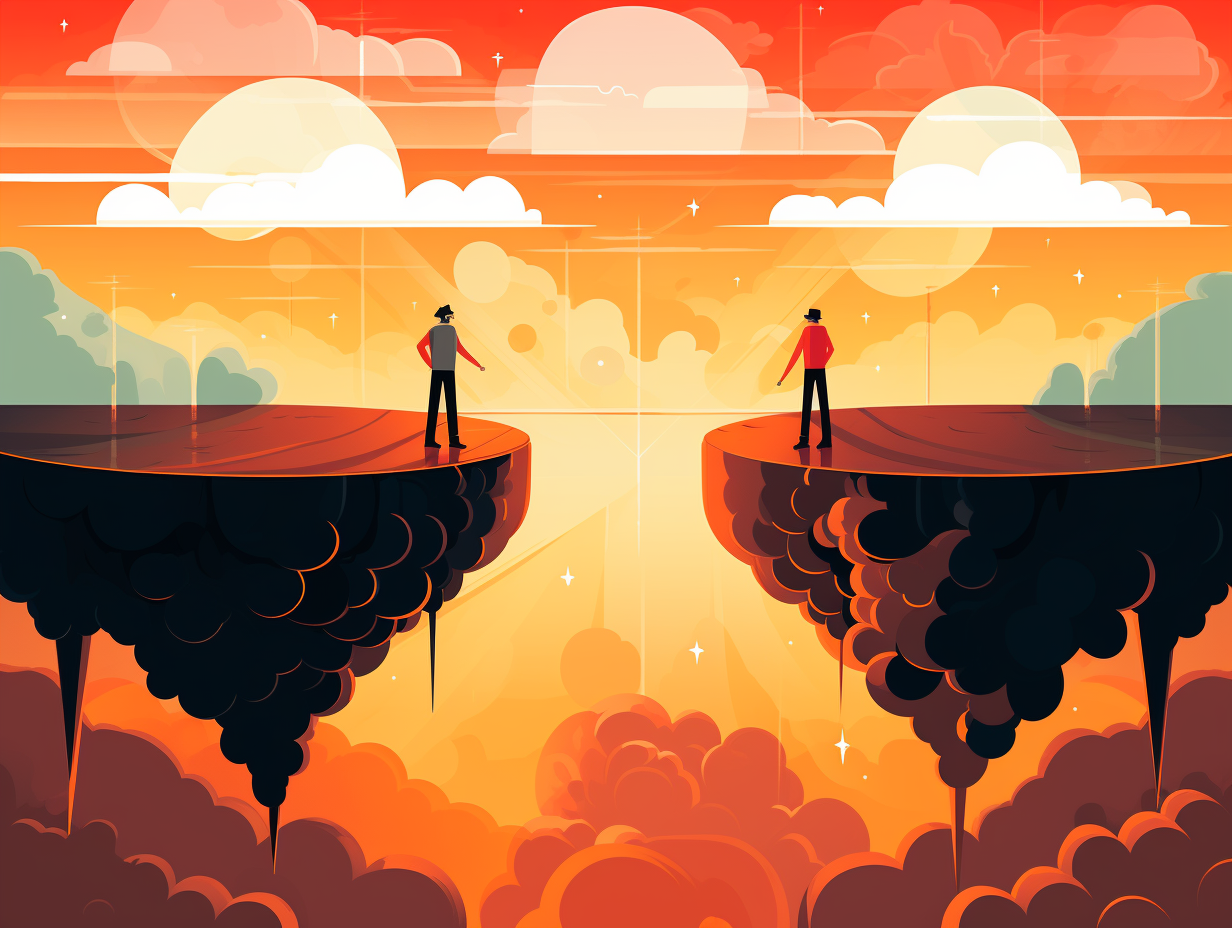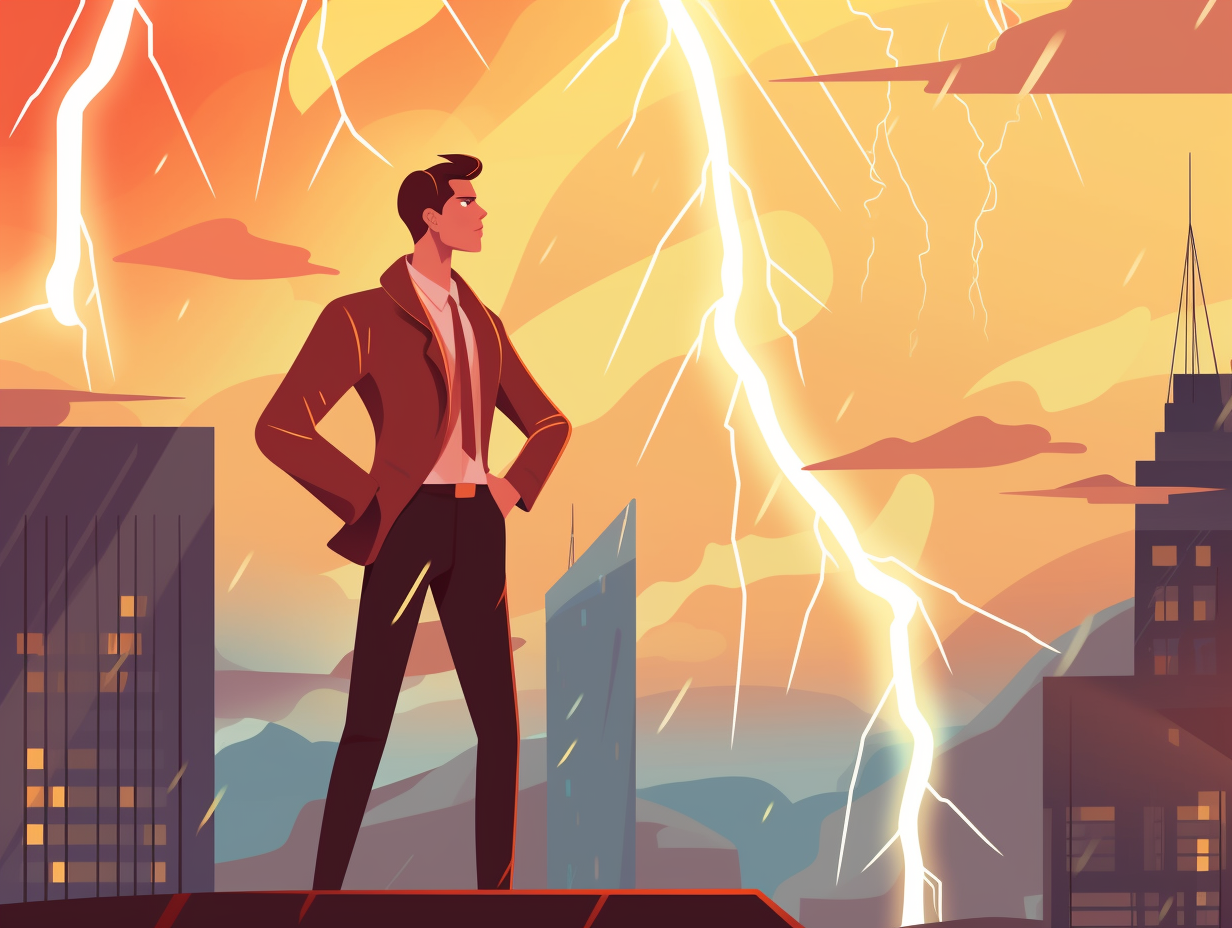21 Unbelievable Fun Facts About Tsunamis: Prepare to Be Amazed!
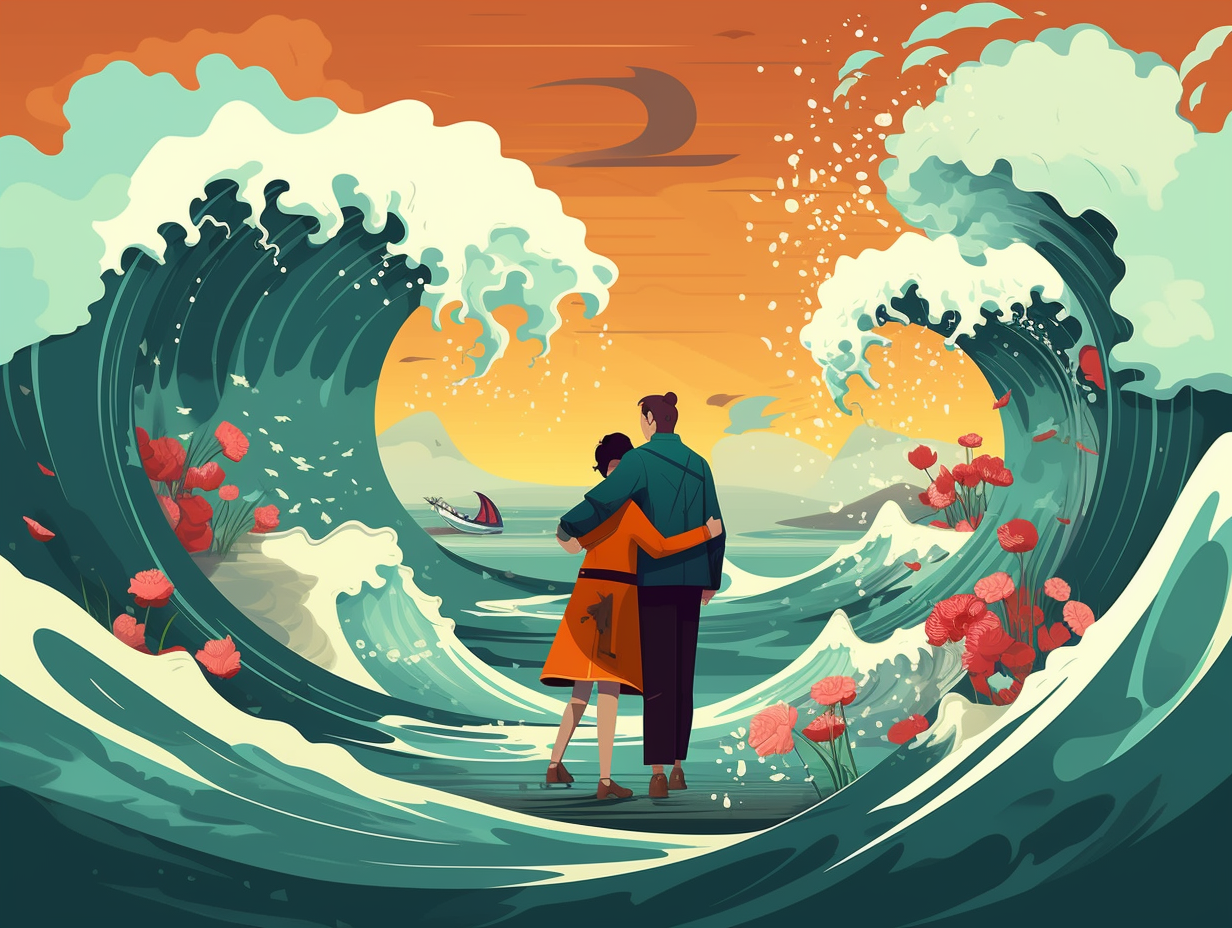
1. Tsunami Speedsters
Hold onto your surfboards, because these waves got a need for speed: Tsunamis can travel at speeds of up to 500 miles per hour in open water, but as they approach the shore, their speed decreases while their wavelength shortens and the wave height rapidly increases, appearing as a fast-approaching wall of water.
Source => tsunami.gov
2. Swipe Right for Tsunami Causes
If tsunamis had a Tinder profile, their bio would read, "nature's wild child, fueled by earthquakes, volcanoes, and underwater landslides – but definitely not into meteorites or nuclear explosions": Tsunamis are primarily caused by disturbances in the ocean floor or water column, with earthquakes along the Pacific Ocean's "Ring of Fire" being the most common culprits behind these massive waves.
Source => itic.ioc-unesco.org

Did you know that the 1931 China floods were the deadliest in history, claiming millions of lives and creating an aquatic apocalypse? Discover more about this terrifying event...
=> Fun Facts about Floods
3. Roadrunner Waves
Hold on to your surfboards, speed demons: tsunami waves can clock in at an impressive 400 to 500 mph (800 kph) in the open ocean, zipping along like wave-riding roadrunners. But as they switch gears and approach the shoreline, these big kahunas transform into powerful wall-like masses, reaching up to 100 feet (30 meters) in height – now that's what we call a gnarly wipeout!
Source => sms-tsunami-warning.com
4. Tsunami's Underwater Hotline
When Mother Nature decides to "phone it in" with a tidal tantrum, there's one gadget on speed dial that's ready to take the call: The DART (Deep-ocean Assessment and Reporting of Tsunamis) system uses pressure sensors on the ocean floor to keep an eye on tsunamis, measuring wave height and timing. This data, along with other critical inputs, helps develop forecasts that can lead to watches, warnings, or full-blown evacuations. So the next time you picture seafarers trying to outswim an unforeseen tsunami, remember – they've got the underwater hotline on their side!
Source => allsensors.com
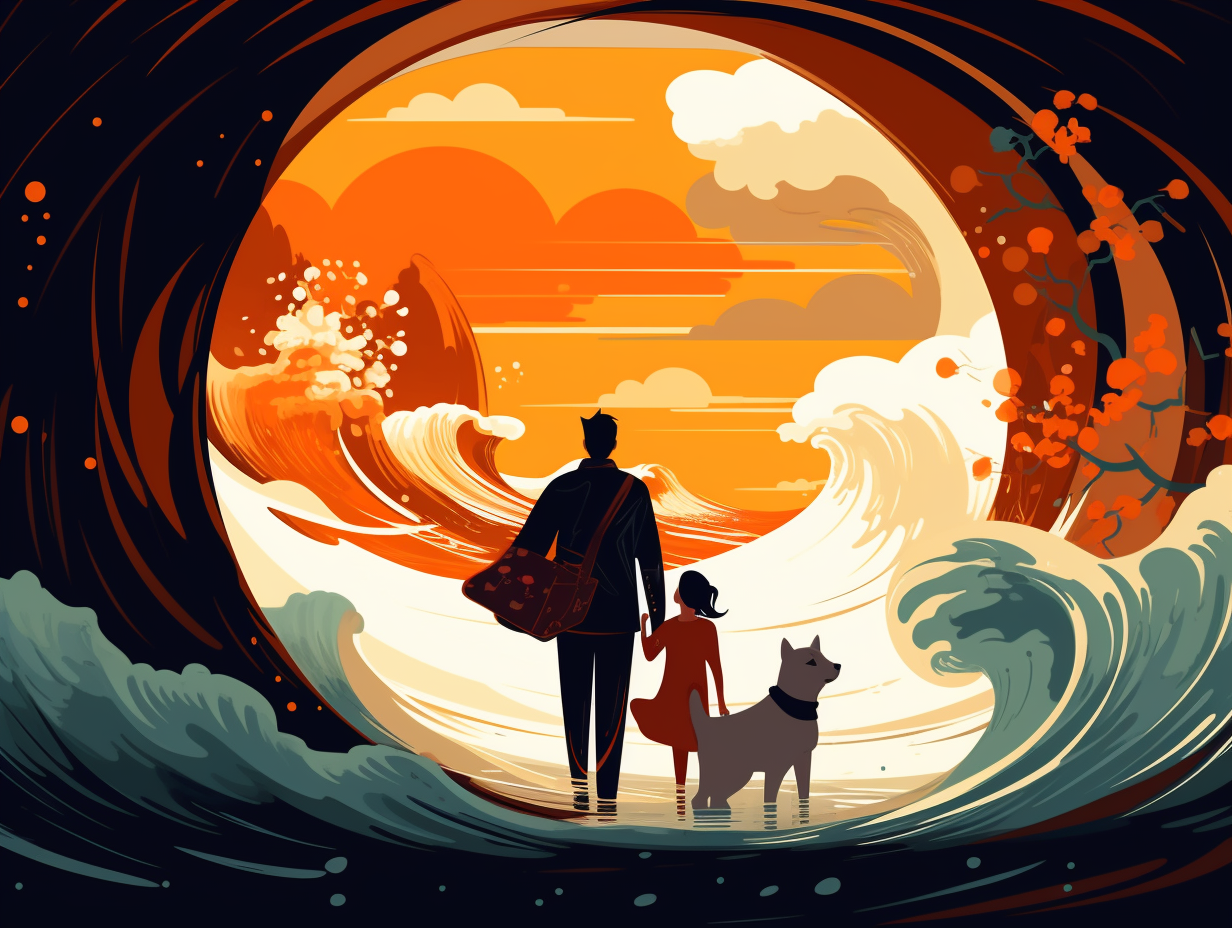
5. Flash vs. Tsunami
Who knew the Flash had a watery rival? Tsunamis speed through the ocean in a race against time before diving in shallow waters for a serene coastal stroll: These marvels of nature travel at an astonishing 400 to 500 mph in deep oceans but slow down and cause multiple waves to crash 10 to 45 minutes apart, sometimes even lasting days after the initial surge!
Source => sms-tsunami-warning.com
6. Jetliner Waves
Surf's up at the speed of a jetliner: Tsunamis, nature's gnarly tidal rogues, can blitz through the open ocean at speeds reaching 600 miles per hour! Fueled by the power of earthquakes, volcanic eruptions, or landslides, these monstrous waves slow down but level up in height as they approach the shore, bringing their catastrophic party crashing onto land. If a tsunami warning is issued, don't try to ride it out, dude; it's time for a coastal exodus to higher ground.
Source => usgs.gov
7. Tsunami Jack & Jill
Jack and Jill went up the ocean's hill; the higher they went, the greater the thrill: In 2004, a monstrous earthquake in the Indian Ocean unleashed a tsunami with waves reaching up to 100 feet high, making it one of the deadliest in modern history, and leaving several countries like Thailand in complete shambles.
Source => cnn.com
8. From Kiddie Pool to Tidal Terror
Tsunamis: nature's version of a seemingly harmless kiddie pool that transforms into a skyscraper-high tidal terror at the eleventh hour! Seriously, though: tsunamis can be barely 3 feet high in the open ocean but once they hit shallow waters, they quickly rise to over 30 meters and race towards shorelines at a frightening 500 mph, often leaving massive destruction and loss in their wake.
Source => weather.gov
9. Mother Nature's Cataclysmic Pool Party
In a shocking twist straight from Poseidon's wrath, Mother Nature hosted a truly devastating pool party in 2004: The Sumatra earthquake, measuring a colossal 9.3 on the Richter scale, displaced so much water that it created a cataclysmic tsunami with twice the energy of all bombs used in World War II, sending 100-feet-high waves crashing into countries like Indonesia, Sri Lanka, India, and South Africa, claiming 190,000 lives and causing billions of dollars in damage.
Source => history.com
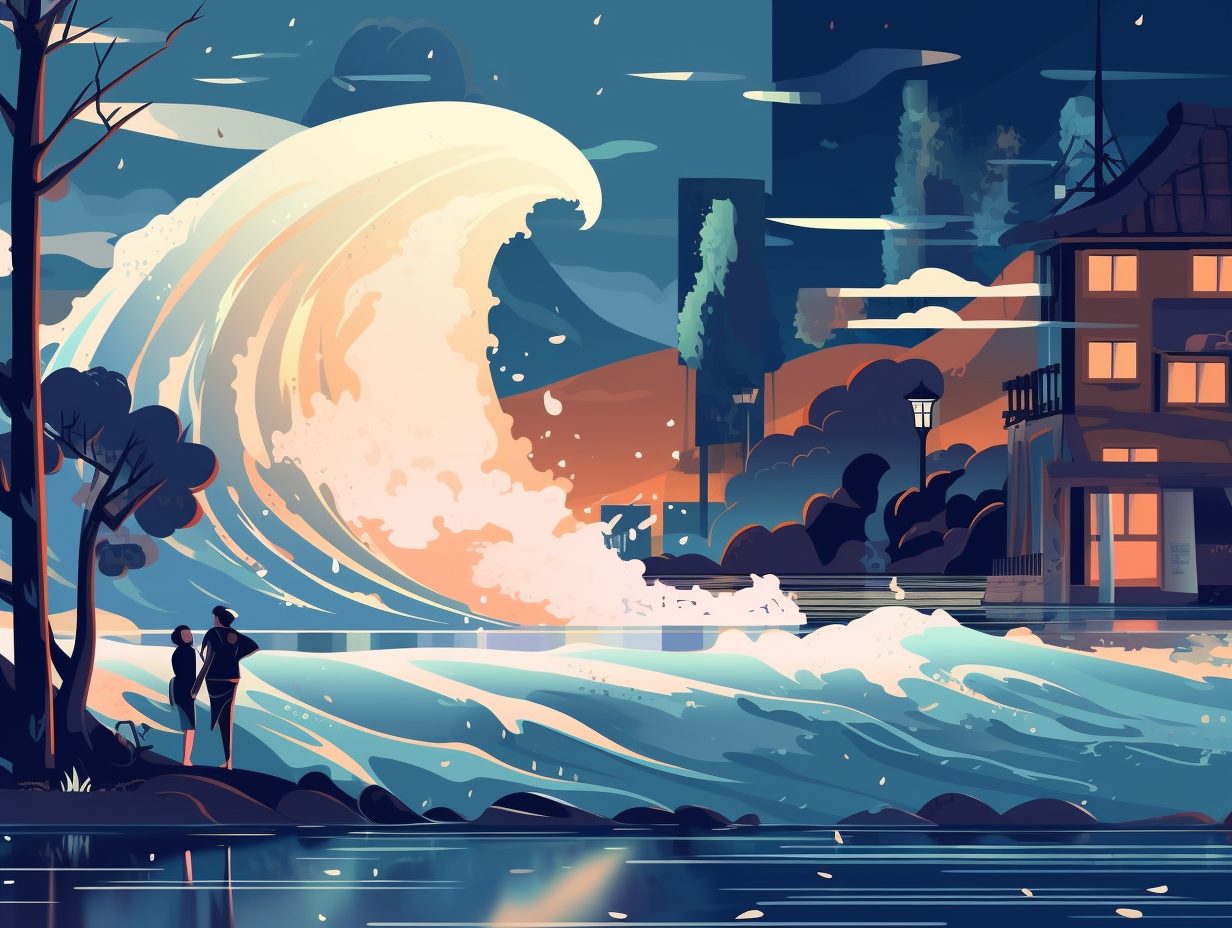
10. Earthquake Bartender
When Mother Nature decides to "shake things up" like a tipsy bartender at a beach party, she certainly doesn't hold back on the booze for her cocktails: The 2004 Indian Ocean earthquake was a 9.1-magnitude behemoth that caused a tsunami so powerful, it unleashed an energy equivalent to over 23,000 atomic bombs and remains one of the most devastating natural disasters in modern history.
Source => worldvision.org
11. Tsunami Slip 'n Slide
Who knew tsunamis could turn beachfront property into a real-life slip 'n slide? It's a wild, wet world indeed: Tsunamis can cause liquefaction, where saturated soil loses its stability and behaves like a liquid, flowing for several hundred meters to kilometers, as witnessed during the 2018 Indonesia Sulawesi earthquake and tsunami, leading to extensive damage and creation of high-density gravity flows.
Source => link.springer.com
12. Watery Ninja Attack
Imagine a colossal high-five from Mother Nature herself, with waves crashing onto your island from all sides like a watery ninja attack: tsunamis can diffract around landmasses and potentially strike an island from multiple directions, depending on the source and geography of the surrounding area.
Source => sms-tsunami-warning.com
13. Poseidon's Splash at Fukushima
When Poseidon got a bit too excited and decided to splash around: the 2011 Tohoku earthquake in Japan unleashed a colossal tsunami with waves surging up to 15 meters high, knocking out all six external power supply sources at the Fukushima Daiichi nuclear power plant, resulting in cooling system failures and a nuclear mishap of epic proportions.
Source => world-nuclear.org
14. Tsunami Showdown: 1958 vs. 2004
In a "go big or go home" showdown between tsunamis, the 1958 Lituya Bay tsunami came out on top like an unstoppable Godzilla of the sea: This monstrous wave reached an almighty height of 1,720 feet, making it one of the tallest ever documented. But, like a villain with a conscience, it claimed a mere five lives due to the remote location. To put things into perspective, the infamous 2004 Indian Ocean tsunami impacted 17 countries and resulted in a staggering 230,000+ casualties, proving that it's no laughing matter to build near risky shores.
Source => undrr.org
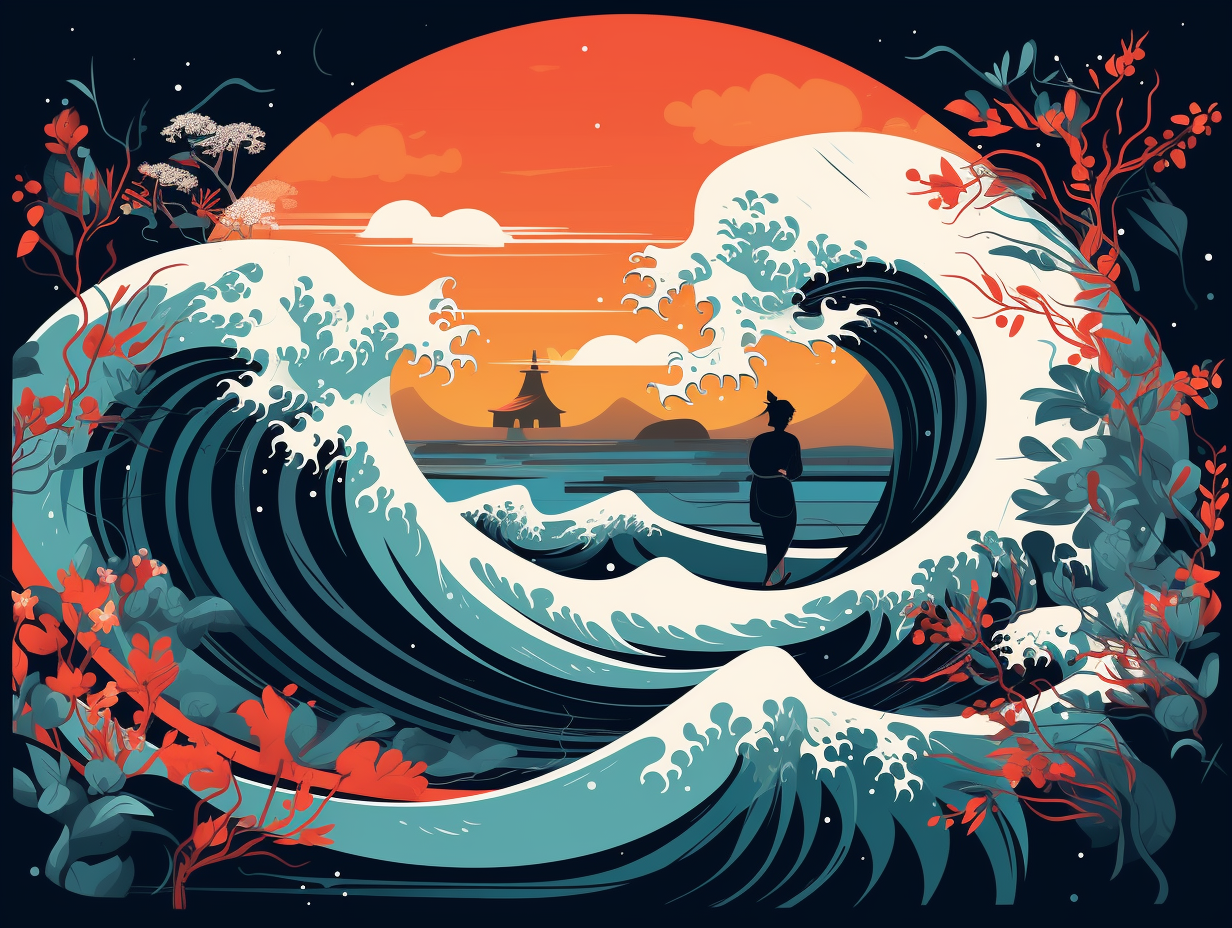
15. Tsunamis vs. Jet Planes
Tsunamis: putting jet planes to shame since the dawn of time! These oceanic speedsters give a whole new meaning to "catching a wave" as they race across the vast blue at over 500 mph (800 km/h) in deep waters: However, when they approach the sandy shores, they slow down their wild water gallop to car-like speeds of around 20 to 30 mph (30 to 50 km/h), while stepping up their heights and intensities like hungry giants ready to consume the coastline.
Source => weather.gov
16. Earth's Axis Twist
When Earth decided to do the Axis Twist, Mother Nature cranked up the volume in Japan: The 2011 earthquake was so powerful that it shifted our planet's axis by nearly 4 inches (10 centimeters), causing Japan's main island, Honshu, to shimmy 8 feet (2.4 meters) and spawning a monstrous tsunami that wreaked havoc and claimed hundreds of lives.
Source => cnn.com
17. Tsunami Makeover
As tsunamis near the shore, they undergo an astonishing makeover, transforming from unassuming ripples to fabulous, towering waves in a shallow seaside runway known as the shoaling process: These waves, though initially puny, can grow to staggering heights as their leading edge slows dramatically in shallower waters and their trailing end continues at rapid speeds, piling up a massive wall of water that wows onlookers and wreaks havoc upon crashing onto land.
Source => sms-tsunami-warning.com
18. Tsunami Wrecking Ball
Mother Nature's wrecking ball goes splash: Tsunamis can unleash a wrath of destruction on coastal structures, as the "hang ten" waves barrel towards shorelines with the fury of an angry Poseidon. Researchers have toiled for eons studying these gnarly aquatic smashers, uncovering critical insights for designing tsunami-resistant buildings and barricades.
Source => link.springer.com
19. Lisbon's Laughter-less Tsunami
They say laughter is the best medicine, but you know what's not a chuckle-fest? A colossal wave crashing down on your city after a massive earthquake: In 1755, the Lisbon earthquake birthed a monstrous tsunami that swallowed Lisbon's harbor and downtown area, sending 20-meter tall waves roaring along the coast of North Africa and traveling across the Atlantic Ocean to Martinique and Barbados. This catastrophe left a sobering death toll of 40,000 to 50,000 people throughout Portugal, Spain, and Morocco.
Source => en.wikipedia.org
20. Fish Beach Parties: A Tsunami Warning
Ever wonder why fish attend impromptu beach parties in their birthday suits? Well, it's not because they got the invite from Jaws himself: When the water recedes from the coast, exposing the ocean floor and potentially leaving fish stranded, it's a natural warning sign of an approaching tsunami, triggered by local earthquakes. If you happen to witness this maritime extravaganza, bid adieu to the sea critters and head to higher ground pronto!
Source => americangeosciences.org
21. Tsunami Party Crashers
Hold onto your water wings, folks – tsunamis aren't just Mother Nature's splashy pool party with a bad DJ known as an earthquake: Tsunamis can also be caused by underwater landslides, volcanic eruptions, or even meteorite impacts, which the USGS studies to better protect and plan for our coastal areas.
Source => usgs.gov
Related Fun Facts


